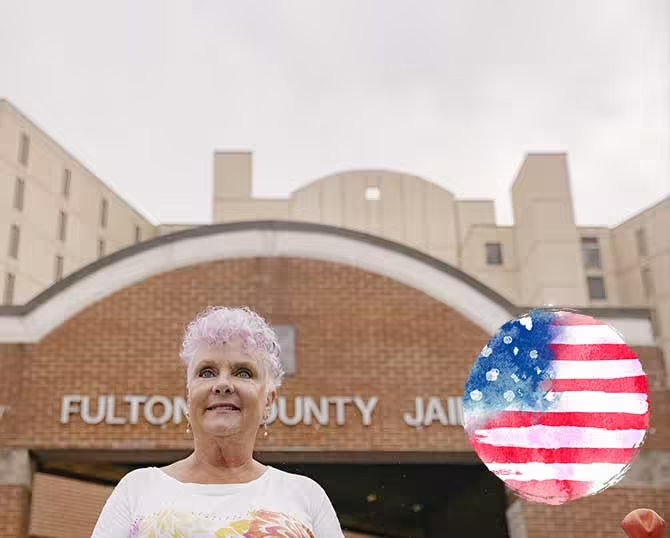Promoting Free Societies
Finding purpose, reclaiming dignity


In 2017, Georgia led the nation in one sobering statistic—one in 13 adults were under correctional supervision. That was dramatically above the national average of one in 31 people in jail, in prison, on probation, or on parole. Hope was hard to come by in an environment like that, but—thankfully—that is changing. Thanks in part to one organization’s work, that number has dropped to one in 19 adults, meaning opportunity and hope for people like Truth Graf.
Going up in flames
Truth Graf’s life was on track. She had a home, a family, and she was PTA president. That all came crashing down with a divorce and an unmanageable mortgage. Add in drugs, addiction, and a fiery crime, and Truth ended up with her children taken away and a seven-year prison sentence for arson.
“Never would I have done such a stupid, desperate thing as upending my children’s lives by everything going up in flames if I was a sober mother,” said Truth. “I didn’t know there were real community resources out here wanting to help me, like Georgia Center for Opportunity; but when you’re in the throes of addiction and desperation you feel so alone.”
But Truth’s story doesn’t end there.
“I [realized] that I was as much to blame, and that’s what gave me the power to mentally and spiritually recover.”
Unlocking her potential
She realized that unlocking her potential depended on her and no one else. Her resentment was only holding her back, and she had to let it go. She said, “I [realized] that I was as much to blame, and that’s what gave me the power to mentally and spiritually recover.” A clean break from her destructive past and a chance to reclaim her inherent dignity—that’s what Truth wanted.
The road to recovery
Truth served her sentence and, once out, continued to make progress toward rebuilding her life. Despite all this, she—like many others like her—continued to face hurdles on the road to recovery. Finding a job is one of the most significant challenges for those just out of prison, and it is a leading cause of a return to crime. A lack of hope and opportunity can be fatal to a person’s chances of successful reintegration.
That’s when Atlas Network partner Georgia Center for Opportunity (GCO) extended a helping hand.
Returning dignity
One of the organization’s missions is to support people such as Truth in their journey to successful reentry in their community. Georgia Center for Opportunity achieves this by collaborating with local businesses to hire formerly incarcerated individuals. They are also a major voice in the movement to return human dignity to people like Truth by reforming regulations and licensing requirements that hold them back unnecessarily.
As part of this effort, GCO successfully “banned the box” requiring job applicants to indicate if they had a criminal record. This effectively discouraged those with a criminal history from applying for jobs and enabled discrimination against those who did apply. Georgia Center for Opportunity successfully made a case against this requirement, and Governor Nathan Deal signed an executive order in 2015 banning the collection of information regarding a job applicant’s criminal record on a job application. Now, those who have served their time have a better chance at rebuilding their lives and escaping the cycle of poverty that plagues so many formerly incarcerated individuals. This victory was aided by a $25,000 grant from Atlas Network and recognized as a finalist for the prestigious 2017 Templeton Freedom Award.
“We believe that everyone, regardless of race or the circumstances of one’s birth, should have the opportunity to achieve a better life and to achieve their potential,” said Randy Hicks, president and CEO of Georgia Center for Opportunity. “Sadly, however, there are still too many barriers that interfere with the pursuit of opportunity and trap people in poverty.”

Reclaiming lives
Truth Graf took the opportunity, dedicated herself, and worked hard to restore not only her own life, but also the lives of other at-risk individuals in her community. She now serves as a Peer Recovery Specialist for Fulton County Superior Court, helping men and women reclaim their lives and unlock their potential through their drug court recovery program.
“Helping others find their purpose and bring their lives back on track is a high better than any drug,” Truth said.